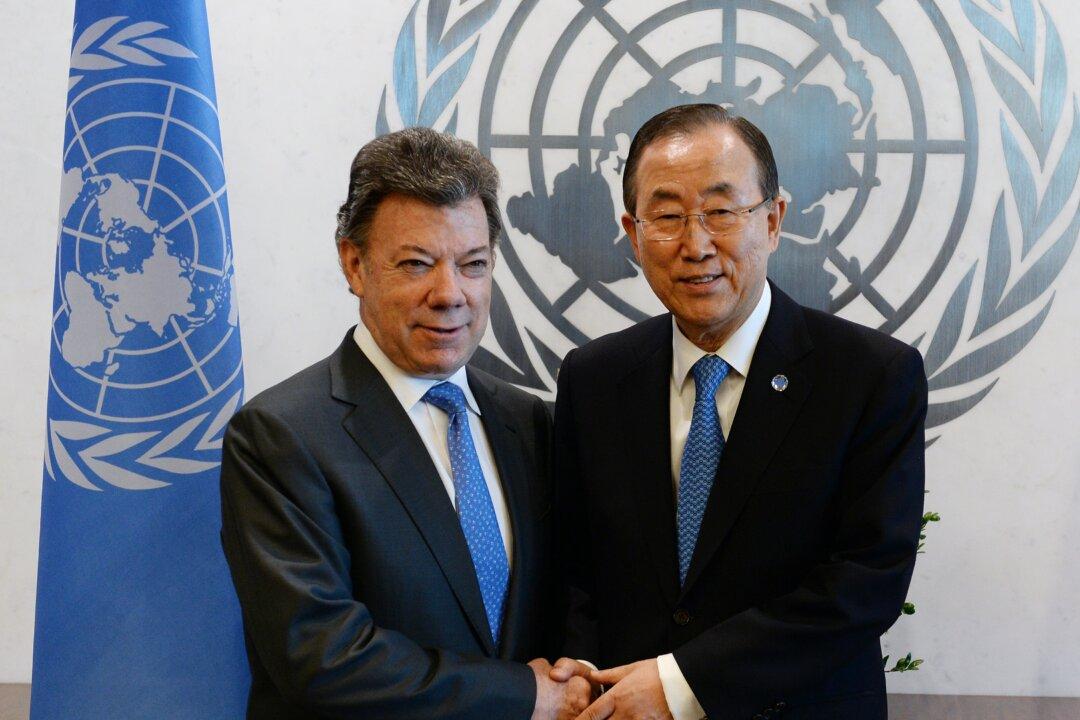UNITED NATIONS—The U.N. Security Council on Monday unanimously approved a resolution to establish a political mission to monitor and verify a future ceasefire in Colombia that would end Latin America’s longest-running guerrilla conflict.
The resolution welcomes the progress in negotiations between Colombia’s government and the Revolutionary Armed Forces of Colombia and notes their joint request last week for a U.N. monitoring mission. In a rare move for the often-divided council, all 15 members co-sponsored the resolution.
The request sent a strong signal that a March 23 deadline to wrap up peace talks could be within reach.
“Finally, our continent will have life without conflict,” the country’s foreign minister, Maria Angela Holguin, told reporters. She said her country hopes to meet the March deadline.
The resolution establishes a political mission for 12 months, and the council can consider an extension if asked by the two parties. The mission will be made up of unarmed observers from Latin American and Caribbean nations.





